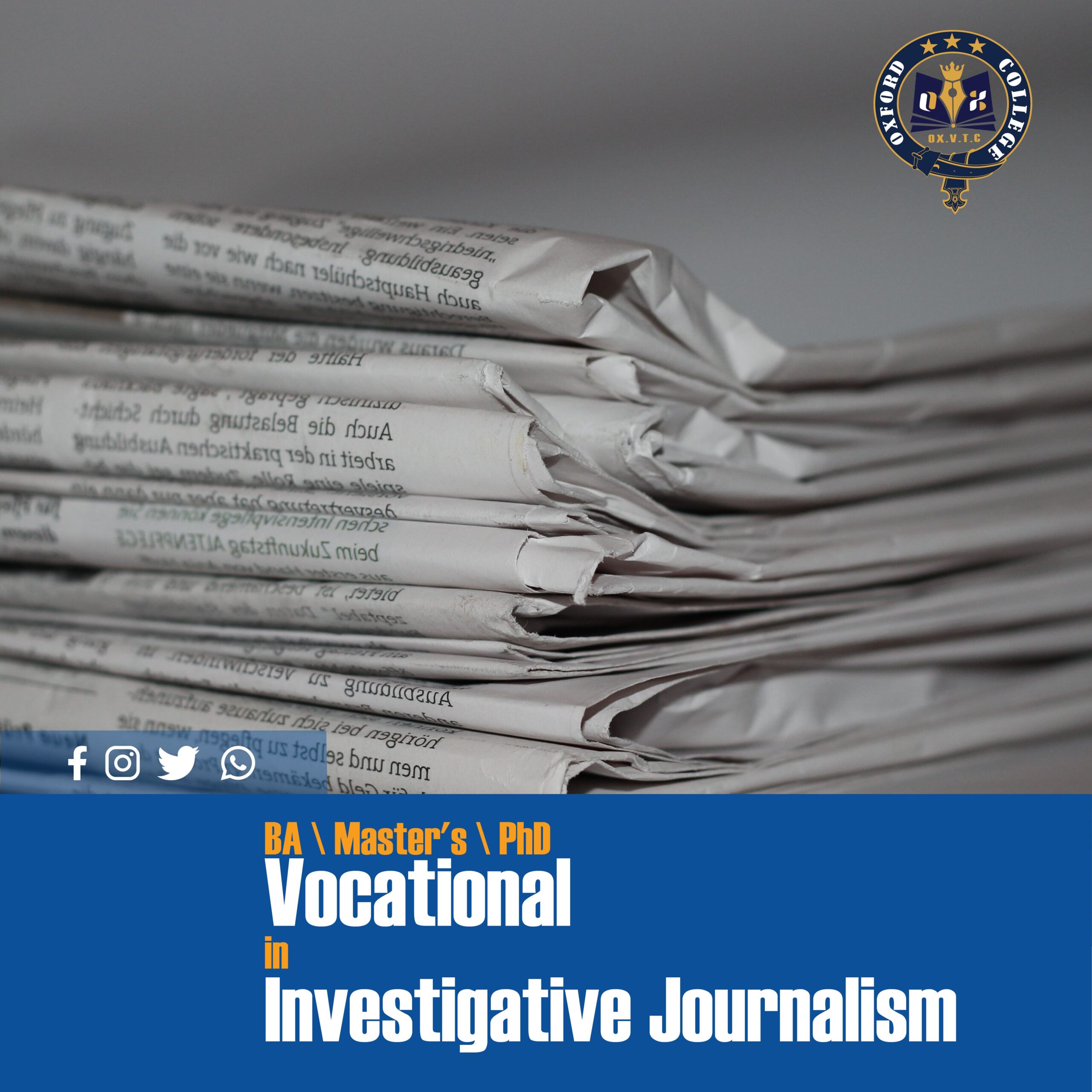Department of Investigative Journalism
Department of Investigative Journalism

اتصل بنا عبر البريد الإلكتروني على info@oxfordcollage.uk أو أرسل استفسارًا تجاريًا عبر الإنترنت.
who should attend?
This program is suitable:
– For Students seeking jobs in human rights, civil liberties and anti-corruption institutions and organizations
– For all journalists who want to enhance and hone their skills, and to be familiar with all kinds of journalism
– Students of the Faculties of Media and Journalism
– Media activists
– Workers in the press and media sectors
Human rights activists
objective
This program aims to:
– Deepening students’ understanding of the investigative press and distinguishing it from other types of journalism
– Developing students’ research knowledge and providing them with the foundations and skills of research and investigative research
– Training students in building investigations and their hypotheses
– Training students in writing style and good content
content
Program themes:
The first axis:
– The concept of investigative journalism
– Investigative journalism models
– The difference between investigative and traditional journalism
The second axis:
– Types of investigations
– Barriers to investigative journalism
– The importance of investigative journalism
– Objectives of investigative journalism
– Stages of writing the investigation
– General advice
The third axis:
– Hypothesis
– Methods of collecting information
-Analysis and updating of information and documents
– Writing style
– Good content
4th axis:
– Address types
Types of introductions
– How do I write the introduction?
– When is the core of the investigation good
– What steel contains
5th axis:
– Cutting steel
– Conclusion
– TV investigation
– Tips
Looking for higher education, at the postgraduate level (Master’s, Professional Doctorate) ?
